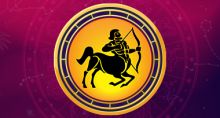What is the significance of Diwali?
The Festival of Lights
Deepavali or Diwali can be described as the biggest and brightest Hindu festival. It is called the ‘festival of lights’ as ‘deep’ means ‘light’ and ‘avali’ means ‘a row’. Thus, the word means ‘a row of lights’. Diwali is marked by five days of celebration.
Diwali falls in late October or early November, on the 15th day of Karthik month. All the five days of the festival celebrate a different tradition. What is constant, however, is the spirit of joy and celebration of life.
Origins of Diwali
Diwali was celebrated even in ancient India. Probably, it began as an important harvest festival. There are many legends about the origin of Diwali.
One legend says that it celebrates the marriage of Goddess Lakshmi and Lord Vishnu. Lakshmi is the goddess of wealth. Another claims that it celebrates her birthday, as Lakshmi is believed to have been born on the new moon day in Kartik month.
Bengalis worship Maa Kali, the dark goddess, during the festival. Most Hindus also worship Lord Ganesha, the elephant-headed god who symbolizes auspiciousness and wisdom. For Jains, Deepavali is important as it was on this day that Lord Mahavira attained nirvana.
Diwali festival also commemorates Lord Rama’s return from exile, along with his wife, Sita, and brother, Lakshmana from 14 long years of exile after killing the demon king, Ravana of Lanka. To celebrate the return of their beloved king, the people of Ayodhya, lit up the entire kingdom with earthen diyas (oil lamps) and burst firecrackers.
Significance of Five Days of Diwali
There is a story behind each day of Diwali. Naraka Chaturdasi is the first day of the festival. It marks the slaying of the demon, Naraka, by Lord Krishna and his wife, Satyabhama.
The second day of Deepavali, Amavasya, marks the worship of Lakshmi. On this day, the goddess is in her most benevolent mood and grants her devotees’ wishes. It was also on this day that Lord Vishnu, as the dwarf, Vamana, upstaged the demon king, Bali, and exiled him to hell. But Bali was allowed to return to earth once a year. On this day he had to light lamps, symbolizing the radiance of wisdom and love, and get rid of darkness and ignorance.
The third day of Deepavali is Kartika Shudda Padyami. On this day, Bali emerges from hell and rules the earth according to Lord Vishnu’s boon. The fourth day is celebrated as Yama Dvitiya or Bhai Dooj. On this day, sisters and brothers get together and celebrate.
On the fifth day, the festival of Dhanteras (dhan means "wealth" and teras means "13th") is observed. This is a celebration of wealth and prosperity and falls two days before Diwali.
There is a tradition of gambling on Diwali. This too has a legend behind it. On this day, Goddess Parvati played dice with Lord Shiva, her husband. She announced that whoever gambled on Diwali night would experience prosperity during that year.
The Significance of Lights and Crackers
The rituals of Diwali have a significance too. For instance, the lights that illuminate homes and the firecrackers are a way of showing respect to the heavens for the blessings of health, wealth, peace, knowledge and prosperity.
One belief has it that the sound of firecrackers represents the joy of the people on earth, thereby indicating to the gods, their abundance. Another reason has a scientific basis: the smoke produced by the bursting of firecrackers repels insects like mosquitoes, which breed during the rains and cause many diseases.
Spiritual significance of Diwali
Diwali has a spiritual significance too as it is a time to reflect on life and make changes for the year ahead.
Forgive and forget – Diwali is a time when people are more open to forgetting and forgiving the wrongdoings of others. A festive and friendly atmosphere dominates the season.
Waking up early - Waking up at Brahmamuhurta (4 a.m) is very good for health, discipline, efficiency and spiritual advancement. It was the ancient sages who introduced this Deepavali custom, realizing its immense benefits.
Festival that unites - Diwali is a festival that unifies people. It brings the entire community together as well as friends and families.
Progress and prosperity - Hindu merchants in North India open fresh account books on this day and pray for success and prosperity for the year ahead. People wear new clothes for the occasion.
Homes are cleaned and decorated for the occasion. At night, they are illuminated with diyas or earthen oil lamps. The finest illuminations can be witnessed in Bombay and Amritsar. At Amritsar, the famous Golden Temple is lit with thousands of lamps in the evening.
Diwali is a festival that inspires charity in people’s hearts and makes them perform good deeds. The fourth day of Diwali is Govardhan Pooja, which is celebrated by Vaishnavites. On this occasion, they feed the poor.
Lighting up the inner self - Diwali also symbolizes a time of inner illumination. Hindus believe that there is a light that shines in our heart. Meditating on this supreme light illuminates our soul. It is an opportunity to experience eternal bliss.
From darkness to light
Deepavali upholds the triumph of good over evil. It is a festival that illuminates our lives and souls by inspiring us to perform good deeds and get close to divinity. It is a time to feel joy, hope and togetherness.



















